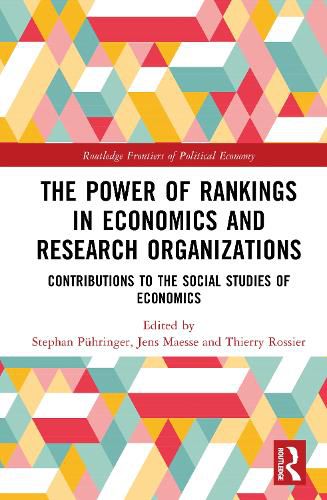Readings Newsletter
Become a Readings Member to make your shopping experience even easier.
Sign in or sign up for free!
You’re not far away from qualifying for FREE standard shipping within Australia
You’ve qualified for FREE standard shipping within Australia
The cart is loading…






Discourses around research excellence and quality are predominant within the economic sciences, with various forms of ranking playing a central role. They make "excellence" in research and teaching visible, but they also create hierarchical orders between researchers, institutions, publication outlets and countries.
The authors of this volume analyse the role of rankings in shaping and transforming economics from different theoretical, methodological, and disciplinary perspectives. The various contributions explore the specific situation in different countries as well as global developments within economics and beyond. In addition, the book contributes to an overall debate about the role and function of rankings in academia. The analysis focuses on four aspects: rankings and social hierarchies, rankings and paradigmatic hegemonies, rankings and regulations/policies, as well as rankings and critique/alternatives.
The book addresses scholars in economic sociology, economics, higher education and science studies.
$9.00 standard shipping within Australia
FREE standard shipping within Australia for orders over $100.00
Express & International shipping calculated at checkout
Discourses around research excellence and quality are predominant within the economic sciences, with various forms of ranking playing a central role. They make "excellence" in research and teaching visible, but they also create hierarchical orders between researchers, institutions, publication outlets and countries.
The authors of this volume analyse the role of rankings in shaping and transforming economics from different theoretical, methodological, and disciplinary perspectives. The various contributions explore the specific situation in different countries as well as global developments within economics and beyond. In addition, the book contributes to an overall debate about the role and function of rankings in academia. The analysis focuses on four aspects: rankings and social hierarchies, rankings and paradigmatic hegemonies, rankings and regulations/policies, as well as rankings and critique/alternatives.
The book addresses scholars in economic sociology, economics, higher education and science studies.